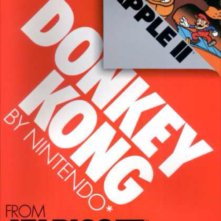When I was a teacher, I asked my 11th-grade students who founded what was then called Apple Computer Inc. “Steve Jobs!” they confidently replied. I prompted them, “Yes, he was one of two Steves. Who was the other?” I died a little bit inside at their blank stares, then showed them G4’s special on the Apple II to rectify the matter. (They were, surprisingly, impressed by Wozniak’s wizardry as demonstrated in that show.)
Sadly, it is not just the next generation whose reality has been distorted. Whatever Apple’s origin, Steve Jobs has attained a popular culture ranking greater than his counterpart and will go down in history as having had more impact on the company. But does that belief reflect historical truth?
Doubtless much of Apple’s success has been attributed to Jobs. Last month’s Juiced.GS cited Carmine Gallo’s book The Innovation Secrets of Steve Jobs, which outlines seven principles Jobs has used to attain success:
- Do what you love. Think differently about your career.
- Put a dent in the universe. Think differently about your vision.
- Kickstart your brain. Think differently about how you think.
- Sell dreams, not products. Think differently about your customers.
- Say no to 1,000 things. Think differently about design.
- Create insanely great expectations. Think differently about your brand experience.
- Master the message. Think differently about your story.
Gallo’s book is not the first to define these concepts. The Cult of Mac recently interviewed John Sculley, CEO of Apple 1983–1993. In that lengthy transcript (8,321 words!), the former sugar water salesman affirms several of the above points, including #4:
[Jobs] always looked at things from the perspective of what was the user’s experience going to be? But unlike a lot of people in product marketing in those days, who would go out and do consumer testing, asking people, “What did they want?” Steve didn’t believe in that.
He said, “How can I possibly ask somebody what a graphics-based computer ought to be when they have no idea what a graphic based computer is? No one has ever seen one before.” He believed that showing someone a calculator, for example, would not give them any indication as to where the computer was going to go because it was just too big a leap.
And #5:
What makes Steve’s methodology different from everyone else’s is that he always believed the most important decisions you make are not the things you do — but the things that you decide not to do. He’s a minimalist.
But are Jobs’ philosophies truly what drove Apple to success? In Susan Lammers’ 1986 book Programmers at Work, an interview with the late Jef Raskin, a former Apple employeee, offers a different perspective:
If Jobs would only take credit for what he really did for the industry, that would be more than enough. But he also insists on taking credit away from everyone else for what they did … He has not designed a single product. Woz designed the Apple II. Ken Rothmuller and others designed Lisa. My team and I designed the Macintosh. Wendell Sanders designed the Apple III. What did Jobs design? Nothing.
Andy Hertzfeld offers an opposing view of who can be considered the father of the Macintosh, but that computer is just one example. Mike Maginnis brings the above product line up to speed by amending it with the iPod, the design of which should be credited to companies PortalPlayer and Pixo. So what has Steve Jobs actually designed Apple Inc.? “Probably not as much as Jobs would like you to think,” Maginnis suggests.
But as far as our favorite computer is concerned, there is one story that most sources agree on — one quoted in The Innovation Secrets of Steve Jobs and retold in Sculley’s recent interview:
If you go back to the Apple II, Steve was the first one to put a computer into a plastic case, which was called ABS plastic in those days, and actually put the keyboard into the computer. It seems like a pretty simple idea today, looking back at it, but even at the time when he created the first Apple II, in 1977 — that was the beginning of the Jobs methodology. And it showed up in the Macintosh and showed up with his NeXT computer. And it showed up with the future Macs, the iMacs, the iPods and the iPhones.
Jobs may not be the design genius he’s made out to be, but his marketing genius is significant. Last month made 25 years since he was ousted from Apple; compare the decade without Jobs to the years since his return in 1996, and you’ll find the company has been revitalized and made significantly more profitable.
It was during Jobs’ absence from the company he founded that the last Apple II, the template for all that was to come from Apple Inc., rolled off the production line. He may have been responsible for the commercial success of the computer, but he cannot be directly blamed for its death. In the end, what else matters?













